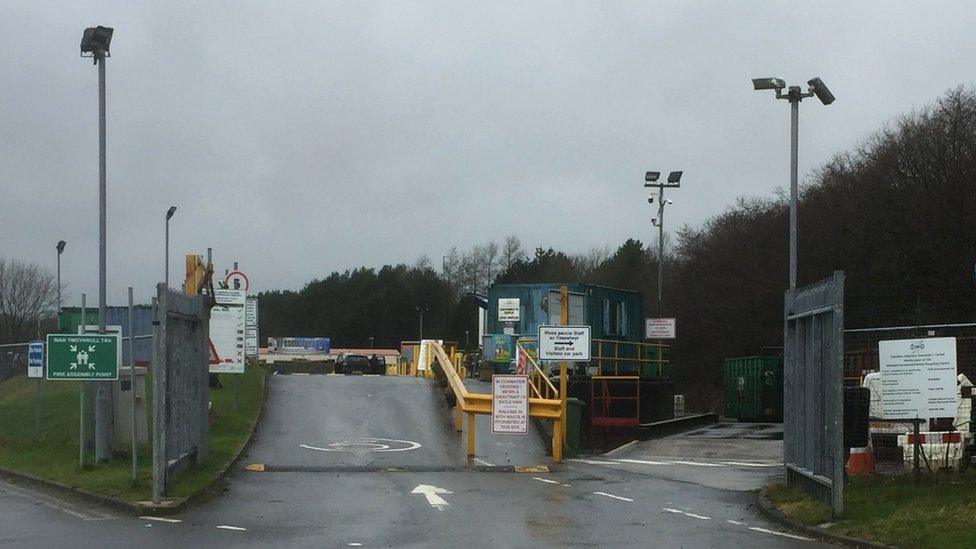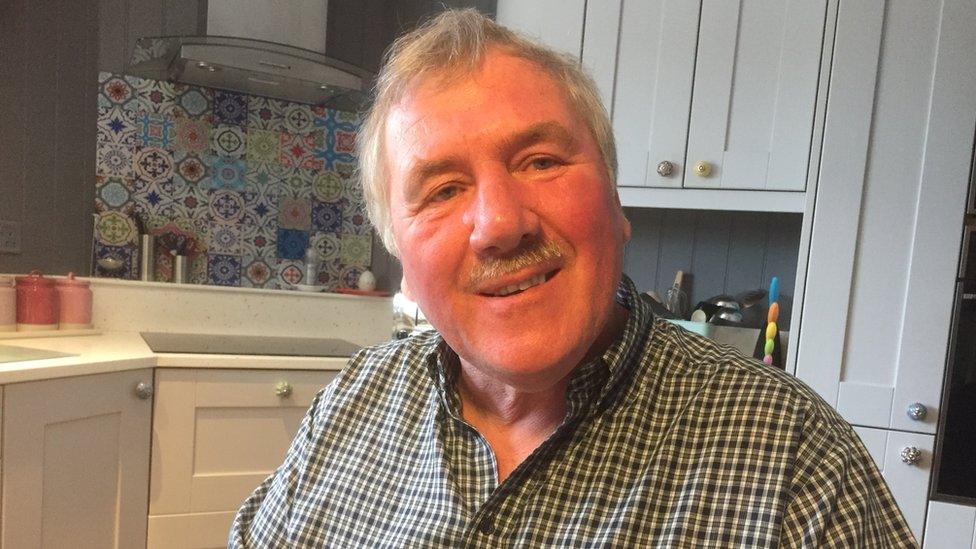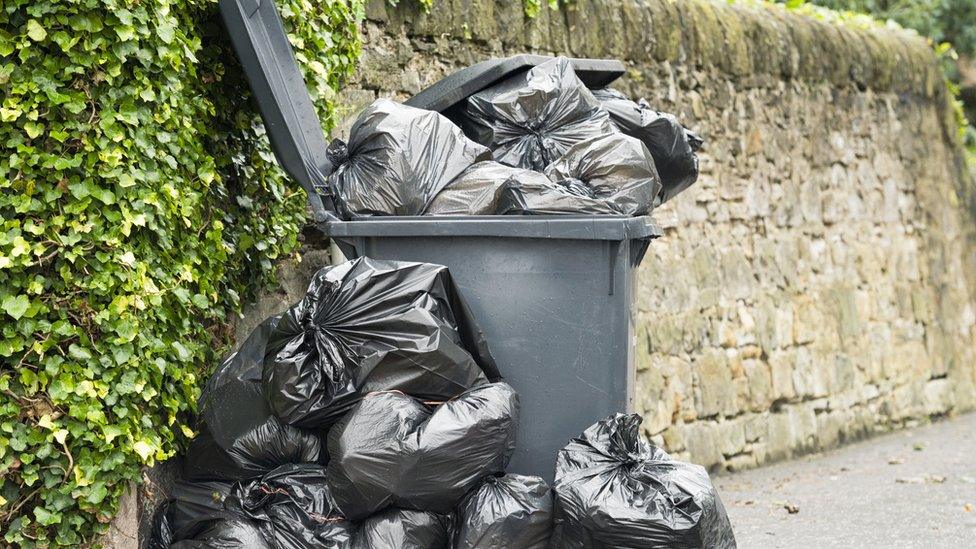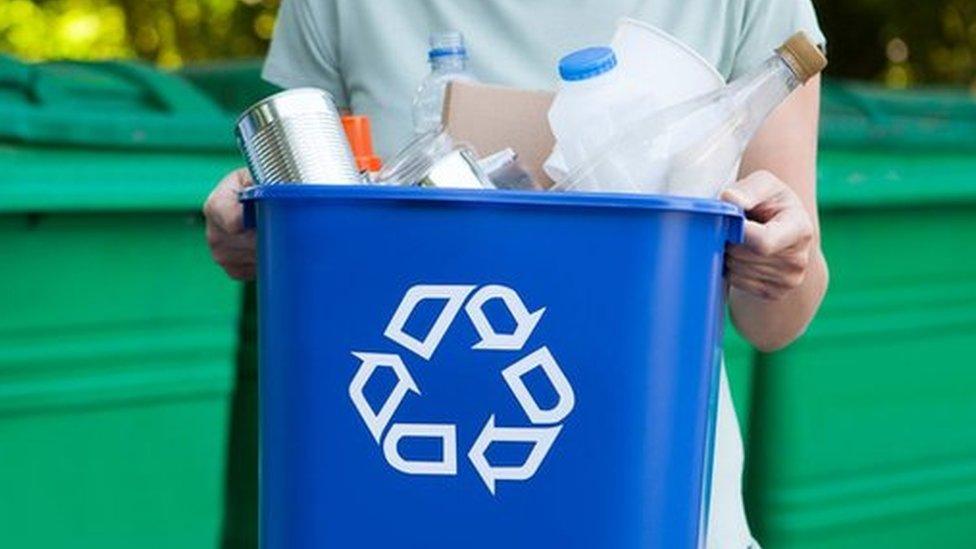Whitland recycling centre closure plan prompts fly-tipping concerns
- Published
- comments

A recycling centre could be closed to help council officials balance its books, prompting fly-tipping concerns.
Closing Whitland's recycling centre would save Carmarthenshire County Council £80,000 annually as it tries to save £16m over the next three years.
But residents would have to travel about 17 miles to reach the nearest recycling centre at Nantycaws.
A senior councillor said the authority would make decisions based on feedback to its budget consultation, external.
Another proposal, external is to reduce the opening hours at both Whitland and Wernddu recycling centre in Ammanford from seven to five days a week to save £20,000 annually.
More than 1,100 people have signed an online petition opposing the closure proposal.
"People are very angry," said resident Clive Edwards, from Whitland, who runs a coach firm.
"We just can't understand it. It's brand new. It is built for purpose.
"Surely, something can be done to keep this new place open.
"If this place closes, people will fly-tip."

County councillor Dorian Phillips: "It's well used locally. It's a good site"
County councillor Dorian Phillips, a member of the Plaid Cymru group that runs the county council with independent councillors, said "it would be a big mistake to close it".
"They'll need extra lorries to collect all the rubbish that will be fly-tipped," he said.
The Whitland recycling centre is the smallest of the council's four facilities and "makes the least contribution" to its waste recycling targets, according to a council report, external.
Councillor Ffion Scourfield, from Whitland Town Council, said the closure proposal was a "huge shock to the the town and surrounding area" and would "increase fly-tipping".
"I feel Carmarthenshire is giving a conflicting message on recycling," she said.
Councillor David Jenkins, the county council's executive board member for resources, said it continued to "face increased costs and demand for our services which is not matched with the same level of increased government funding".
"Asking people how our proposals might impact on them is important to us, so that we can fully understand public opinion and make decisions based on that feedback," he said.
The budget proposals consultation ends on 28 January. No final decisions will be made until March.
- Published17 January 2020

- Published24 November 2019

- Published4 November 2019
